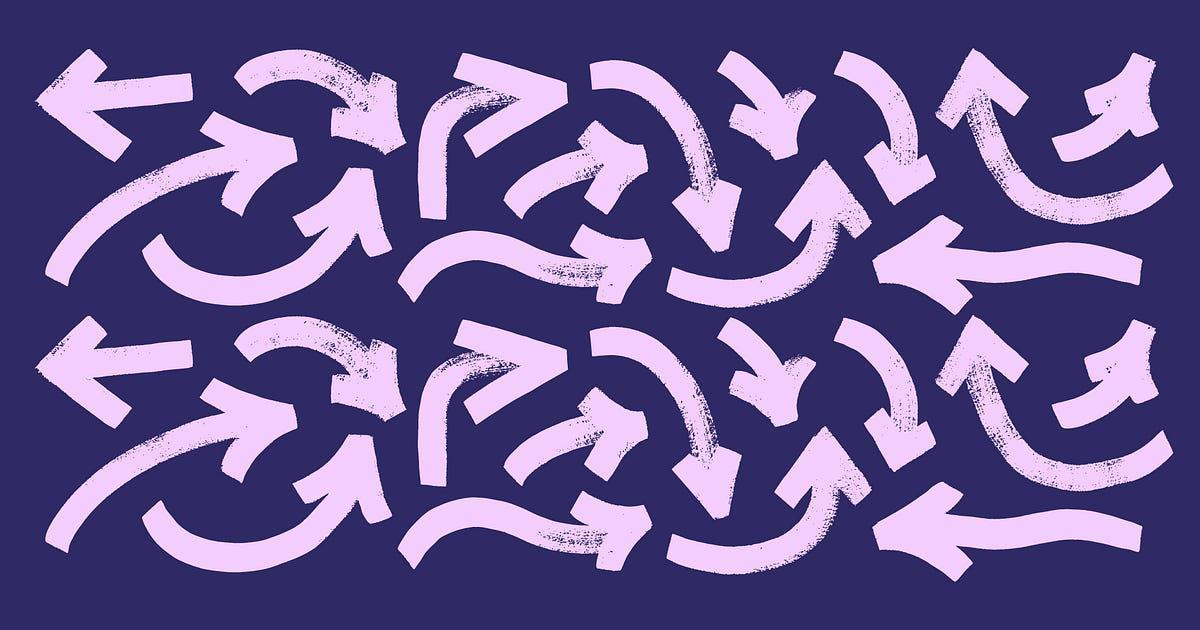“If you want to be creative, you cannot be certain.” I remember the first time I heard these words. My father and I had just sat down for lunch at a restaurant in a hotel in my hometown. It was summer, and I was home visiting. My father and I started talking about creativity. The ups and downs of it all. My father is a musician and a writer, and at the time, he was working on his latest music project. I was in the early stages of my career in advertising.
As we began to enjoy our meal, I started to tell my father about my recent struggles with decision-making. At that time, I felt it was difficult for me to make quick decisions at work and in life. As a designer in the marketing field, the lack of a sense of quick decision-making felt like a barrier I had to “learn” to overcome in order to deliver great work at the speed required in an industry that is always looking for the next new thing. As I explained my frustration to my father, he looked at me and said something that has become a personal motto for me: “If you want to be creative, you cannot be certain.” He went on to explain that creativity is the opposite of certainty. When you create, you are making something that has never been made before, and in doing so, there is no clear path of Yeses and Noes. If you want to be creative, you must be willing to enter the unknown.
The conversation was inspiring and eye-opening, and afterward, I began to think about all the different ways uncertainty is a superpower for generating creative solutions.
The willingness to do things that have never been done before.
When we create things that have never been done before, uncertainty is inevitable. During my time at the global design and innovation company IDEO, our seven company values guided our work. The third, “embrace ambiguity,” encouraged us to think outside the box. “Embrace” does not mean it is easy. Quite the opposite. We often found ourselves in a fog of self-doubt to some degree, like impostors.
One of my favorite writers and creators, Seth Godin, has this blog post where he talks about uncertainty and impostor syndrome. Godin explains, “Everyone doing important work is exploring things that might not work. When things might not work, your behavior is as if they will. That makes you an impostor.” That is the essence of creativity. Doing important work that might not work. When the level of self-doubt begins to creep in, knowing that it is part of the process, without it, we would not be able to create.
Courage
The creative process is about iteration. We make drafts or prototypes. Then, we edit our ideas based on feedback. Sometimes, the final solution looks nothing like the starting point. Change and uncertainty require courage. The uncertainty we perceive can give us the courage to pivot - as we continually assess our ideas based on needs and the market.
When we discover that our solution has more drawbacks than benefits, we may feel distant - or that no one really wants to buy what we have worked on for so long. This is when we need the courage to face the facts and change direction. To enter the unknown and try new things.
The time spent may feel like a waste, but it is not. Discovering the wrong way is hard work. Once we know the wrong way, we are one step closer to the right way.
The willingness to stay in the problem long enough for the dots to connect.
Not being able to make a decision is frustrating, but it also allows me to stay in the problem longer. I am not rushing to find a quick solution, but rather twisting and turning the problem. I often find it necessary to go back and do more research. To ensure that the path I decide to take is the right one. It wasn't until I became more comfortable in my role as a designer (I wish I could say my impostor syndrome has disappeared, but it still rears its head in every project) that I realized the benefits of this. When solving the problem of creative solutions, we must first take the time to figure out the right problem. Then ensure that the solutions we propose are not just band-aids.
When you stay in the problem longer, you give yourself more time to connect seemingly unrelated dots. Often, that is what creativity is all about - finding meaning in the unrelated. A phenomenon called apophenia. We are connecting unrelated dots while embracing uncertainty.
I am in a moment of uncertainty. I left IDEO due to the office closure in Munich. The discomfort of not knowing what will happen next is undeniable. However, I am determined to leverage this uncertainty as an advantage and embrace the unknown in the next chapter of my more creative journey.
